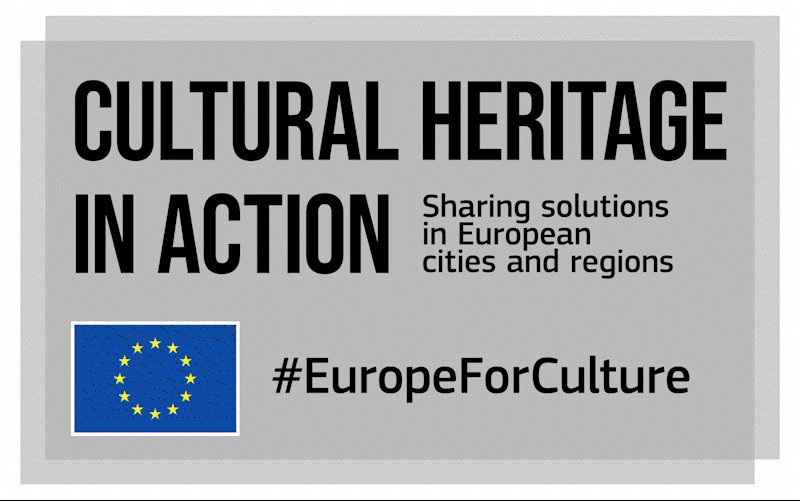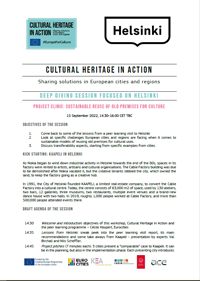Objectives of the session
- Come back to some of the lessons from a peer learning visit to Helsinki
- Look at specific challenges European cities and regions face regarding sustainable models of reusing old premises for cultural uses.
- Discuss transferability aspects, starting from specific examples from cities.
Kick starting: Kaapeli in Helsinki
As Nokia began to wind down industrial activity in Helsinki towards the end of the 80s, spaces in its factory were rented to artists, artisans and cultural organisations. The Cable Factory building was due to be demolished after Nokia vacated it, but the creative tenants lobbied the city, which owned the land, to keep the factory going as a creative hub.
In 1991, the City of Helsinki founded KAAPELI, a limited real-estate company, to convert the Cable Factory into a cultural centre. Today, the centre comprises 63,000 m2 of space, used by 130 ateliers, two bars, 12 galleries, three museums, two restaurants, multiple event venues and a brand-new dance house with two halls. In 2019, roughly 1,000 people worked at Cable Factory, and more than 500,000 attended events.
Projects clinic
Following three projects’ pitches, participants question and dig into the presented pitches’ details. Participants reflect on the presenting cities’ projects and offer suggestions for overcoming barriers or accelerating/enabling activities. Presenting cities reflect on what they’ve heard and provide additional information.
Project’s pitches:
- Bologna, Italy: a new covered square “Lucio Dalla”, 6.000 sqm that the city just finished regenerating
- Puglia, Italy: Ex SACA industrial building in Brindisi
- Bucharest, Romania: REBU halls in Berzei
Why should you join?
During this session, you will get some insights into the content of the Helsinki peer learning visit and the analysis of the specific governance model of Kaapeli. Three cities will present a “comparable” case to Kaapeli, focusing on the background, the status of work to date, and ambition, and highlighting one or two key issues where they would welcome the input of other participants. The essence of the advice can be captured as “top tips”. Presenting cities will reflect on what they’ve heard and provide additional information. The session will also be an opportunity to discuss your own challenges and present your examples.
The session will provide an occasion to engage in discussion with peers from other European local authorities. We will also provide access to the materials shared during the peer learning visit with all participants in the online deep-diving session.



